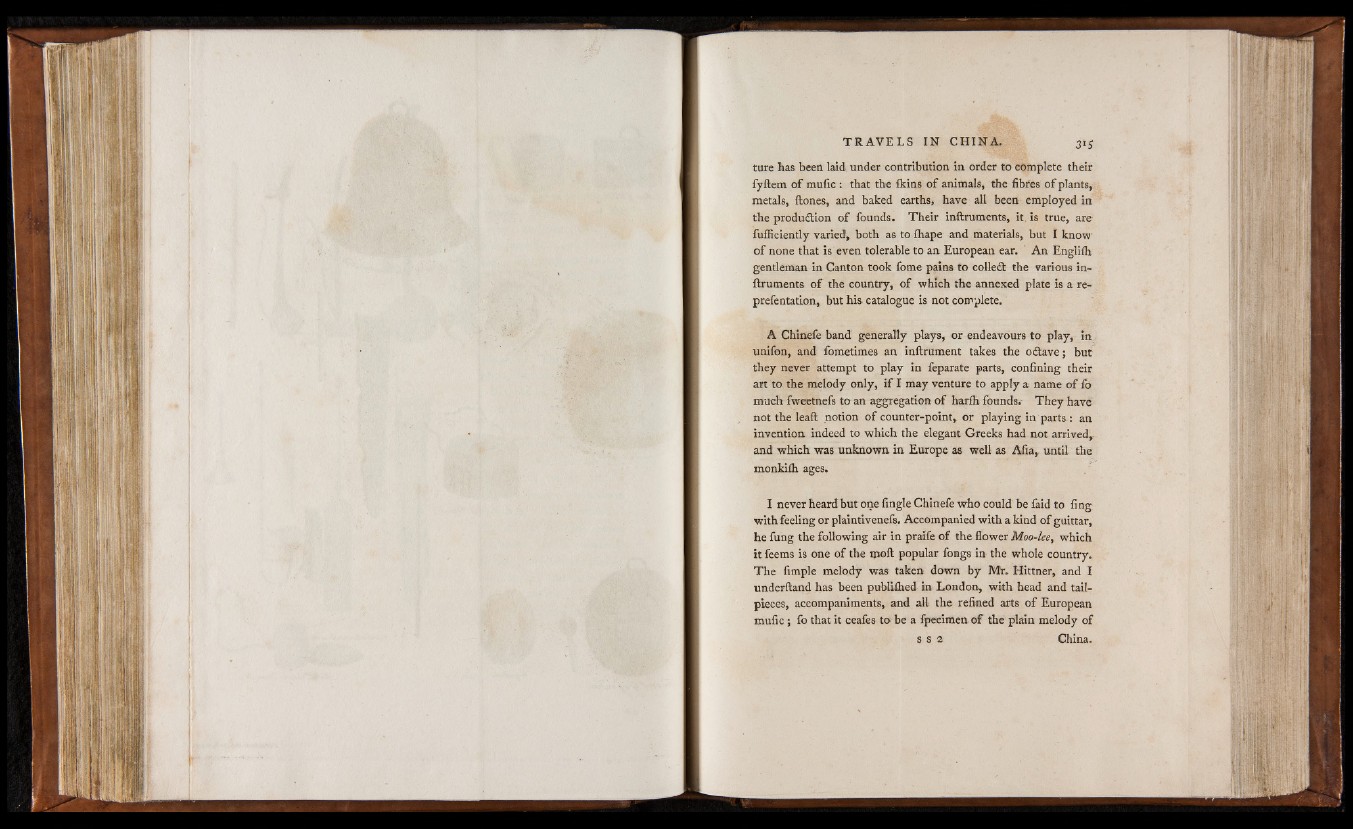
ture has been laid under contribution in order to complete their
fyftem o f mufic : that the ikins o f animals, the fibies o f plants,
metals, ftones, and baked earths, have all been employed in
the production o f founds. Their inftruments, it, is true, are
fufficiently varied, both as to ihape and materials, but I know
o f none that is even tolerable to an European ear. ' An Engliih
gentleman in Canton took fome pains to colleCt the various inftruments
o f the country, o f which the annexed plate is a re-
prefentation, but his catalogue is not complete.
A Chinefe band generally plays, or endeavours to play, in
unifon, and ibmetimes an inftrument takes the oCtave; but
they never attempt to play in feparate parts, confining their
art to the melody only, i f I may venture to apply a name o f fo
much fweetnefs to an aggregation o f barlh founds.- T h e y have
not the leaft notion o f counter-point, or playing in parts.: an
invention indeed to which the elegant Greeks had not arrived,
and which was unknown in Europe as well as Afia, until the
monkiih ages.
I never heard but one fingle Chinefe who could be faid to fing
with feeling or plaintivenefs. Accompanied w ith a kind o f guittar,
he fung the following air in praife o f the flower Moo-lee, which
it feems is one o f the moft popular fongs in the whole country.
The fimple melody was taken down by IVfr. Hittner, and I
underftand has been publiihed in London, with head and tailpieces,
accompaniments, and all the refined arts o f European
mufic; fo that it ceafes to- be a fpeeimen o f the plain melody o f
S S 2 China.